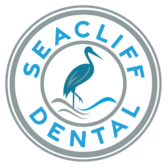When getting health insurance, many of us seek insurance plans covering only the costs of treatment for serious medical conditions or accidents. We tend to ignore the fact that dental insurance is also as important. Dental disease is a very common problem and covering the cost of treatment can be expensive. Proper dental care plays an important role in your overall health. For essential safeguards for you and your family, it’s important to get a dental insurance plan in addition to your regular medical insurance plan.
Various Plans for Various Needs
There are various dental plans, so you can choose according to your needs and expectations. Knowing the important differences can help when selecting a plan and using the benefits. Here are some other important points to keep in mind:
1. Third Parties
A dental plan usually involves three parties: you, the dentist, and a third party responsible for the funding and administration of the plan. If your plan is funded by your employer, then an administrator would be responsible for processing and payment of claims. There are three types of third parties.
2. Choosing your Dentist
There are plans which allow you to choose your own dentist, while there are other cheaper plans which may limit your choice. The two plans are called open and closed panel plans — more commonly known as PPO and HMO plans.
Open Panel or PPO: With PPOs the patient can receive care from any dentist. However, the dentist may accept or refuse to treat patients enrolled in the plan.
Closed Panel or HMO: With HMOs covered patients can receive care only from dentists who have signed a contract of participation with the third party and are considered “in-network.”
It’s always important to make sure that your dentist will accept the dental insurance and plan you have and make sure they are “in-network” if you have an HMO. A quick phone call or email to your preferred dental office will put you in touch with someone who can assist you with your dental coverage questions.
3. Paying the Dentist
There are various plans outlining how the dentist gets paid for his or her treatment services.
Indemnity Plans: With indemnity plans the insurance carrier charges a monthly premium from the patient and this money gets directly reimbursed to the dentist for his services. The insurance company will pay between 50% and 80% of the dentist’s fee while the remaining 20% to 50% is paid by the patient.
Capitation Plans: With capitation plans the dentist is paid on a per person basis rather than for actual treatment. A Dental Health Maintenance Organization (DHMO) is a common example of a capitation plan.
Direct Reimbursement Plans: Direct reimbursement plans are self-funded plans where the employer or a company will pay with its own funds, rather than paying premiums to an insurance carrier or third party. The patient pays the dentist directly, and the employer will reimburse the employee a fixed percentage of the dental care costs, once the receipt showing payment and services received is supplied.
Benefits:
The main difference between medical disease and dental disease is that medical disease can be unpredictable and catastrophic, but fortunately most dental problems are preventable. The key to having healthy teeth is to be proactive about preventive care. Make regular visits to the dentist for checkups and cleanings. An oral hygiene routine with regular dental visits can keep your mouth healthy by preventing gum disease and cavities while being able to diagnose and fix any issues early. Catching dental issues early will reduce the number of tests, procedures and cost of treatment saving you from unnecessary dental pain and expensive treatments. By following a regular oral care routine you can keep the costs of dental care much lower than those of medical care.
Dental plans also cover the patient’s regular checkup, unlike medical insurance which may cover the costs of diagnosing, treating and curing serious illnesses. High quality dental care does not require much of the complex, multiple resources often required by medical care. A thorough checkup by the dentist and a set of x-rays are all it takes to diagnose a problem. As most dental problems can be prevented, dental plans are structured to encourage patients to get their regular checkup which is essential for preventing and diagnosing any serious disease. And remember, oral health is a key component to overall health.
Proper dental care plays an important role in your overall health. A dental insurance plan is as important as a medical insurance plan.
SeaCliff Dental San Francisco Tweet

